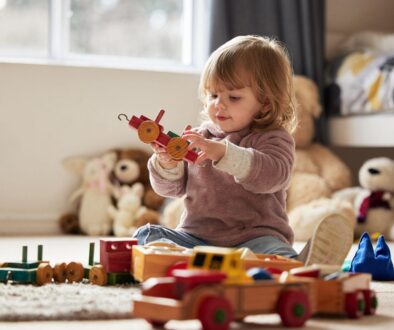Reframing Your Child’s Behavior

Reframing behavior is important because it allows us to shift our perspective and empowers us to view situations, ourselves, and others in a more positive and constructive light. By reframing behaviors, we can use more positive words to describe a child’s more challenging behavior. This will allow children to receive more positive messages and get a clearer and more positive picture of who they are. By shifting our mindset and seeking positive interpretations, we can respond to their behavior with patience, empathy, and guidance, fostering their overall development and well-being.
If your child refuses to share toys with others:
Try saying– “You really value your belongings and want to take good care of them. Let’s find a way to share that makes you feel comfortable and ensures your toys are respected.”
If your child interrupts when adults are talking:
Try saying– “You have so many interesting ideas and things to share! Let’s work on finding a way for you to share your thoughts respectfully without interrupting.”
If your child is being loud and disruptive:
Try saying– “You seem to have a lot of energy right now. How about we find a quiet activity that allows you to express yourself without disturbing others?”
If your child is hesitant to try new foods:
Try saying- “You’re being cautious about trying new foods. It’s important to be curious and open-minded, but it’s also okay to take your time. Let’s explore different foods together and find ones you enjoy.”
If your child is showing signs of frustration when attempting a new skill:
Try saying– “It’s normal to feel frustrated when learning something new. That means you’re challenging yourself and growing! Let’s celebrate your progress and keep practicing together.”
Remember, reframing labels for behavior requires a mindset shift and consistent effort. By focusing on understanding, growth, and positive change, you can create a more constructive and nurturing environment for your child’s development.





